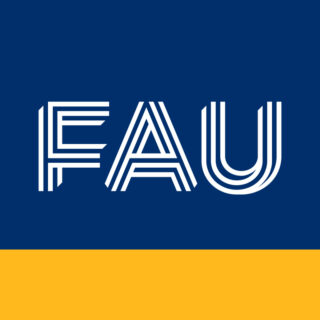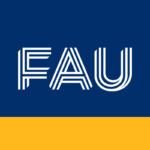Flipped Classroom – Virtual Exchange strengthens international web based collaboration
Kurzbeschreibung:
During the Virtual Exchange on “Teaching and Learning in Primary Education in International Comparison” students at the University of Erlangen-Nürnberg / Germany and students at the University of Latvia collaborate on various topics.
Zielgruppen: Bachelor und Staatsexamen
Ausgangssituation
“In their professional sphere, teaching staff is increasingly required to handle heterogeneous groups of learners characterised by cultural diversity – a task that they will be able to perform better if they obtained intercultural skills during their training.
The internationalisation of teacher education is therefore getting more and more attention.” (HRK, 2018, p. 3)
Yet there are numerous barriers for student teachers to complete trips abroad (Wernisch 2016, pp. 275–302, DAAD/DZHW 2019, pp. 92–94), which is why mobility figures for student teachers, in particular those studying primary education, are comparatively low in Germany and throughout Europe (DAAD/DZHW 2019, p. 93).
Besides the traditional forms of studying abroad and short-time stays abroad for internships, there is therefore ever-increasing focus on internationalisation at home. This is about integrating international and intercultural aspects in content and methodology including virtual exchange.
The project “Teaching and Learning in Primary Education in International Comparison” picks up on this development and offers web-based learning in which students have the opportunity to reflect on the key issues of primary education in an international comparison while at the same time working with students from international partner universities.
Ziele
Cognitive competence: students specify distinguishing elements of education systems, teaching and learning at primary schools, and assessment at primary schools in international comparison.
Digital Competence: students use digital tools to collaborate effectively in transnational groups.
Intercultural Communicative Competence: students communicate effectively online in intercultural groups. They get to know different perspectives and reflect on their own culture as well as on cultural similarities and differences.
Konzepte, Umsetzung, Methoden
The course provides an overview of primary education in an international comparison. In addition to the education systems, students will investigate the basics of teaching and learning as well as assessment at primary schools.
(see figure 1)
Focus is placed on online collaboration in small groups of usually 6 students (3 from Germany and 3 of Latvia); students tackle tasks together and their country-specific perspective is considered during discussions. They will work on assignments, gaining experiences from working in an international team while reflecting on similarities and differences within the education systems.
The course is hosted on MS Teams and students have synchronous and asynchronous means of communication available to them.
The project offers the opportunity to gain international experience through virtual exchange, thereby enhancing intercultural, digital-pedagogical, and linguistic competences (The Evaluate Group 2019, pp. 25–62).
Not only should this course strengthen collaboration but also build a bridge for physical mobility.
The course is hosted on MS Teams. This platform professionally combines synchronous and asynchronous tools and is used in university teaching as well as in schools. Different channels (general, forum, groups…) and content tabs (WhoIsWho, Week1+2…) help clearly structure the course.
(see figure 2)
The course is based on the shared syllabus approach (O’Dowd, 2018, p. 7) of Virtual Exchange (addition of international perspectives to course syllabus, development of digital competence and intercultural competence).
It follows the established task sequence of the Progressive Exchange Model (Müller-Hartmann, O’Dowd & colleagues from the EVALUATE Group, 2019, p. 9):
Task 1: Information Exchange: Getting to Know Each Other
Task 2: Comparing and Analysing Cultural Practices
Task 3: Working on a Collaborative Product
Taking the increased workload (self-study, collaboration in transnational teams, and synchronous elements) and different academic timetables into consideration, the course is designed for a 10-week period. Approximately 12 students from each university can participate, who then work together in 3–4 transnational groups.
During the first phase of the course, focus is placed on the following aspects: introduction to course structure and goals, getting to know each other, group formation, principles of intercultural/transnational communication and collaboration
Afterwards, the students work on the following topics in their transnational teams (3 students from FAU and 3 students from the partner university):
• education systems in international comparison
• teaching and learning at primary schools in international comparison
• assessment at primary schools in international comparison
Following the flipped classroom-design approach, the students first elaborate important basic concepts on the respective topic blocks, in interactive learning modules with MS-teams integrated assignments that serve to deepen their understanding. All learning modules follow the same, clear structure.
(see figure 3)
The students then research key facts about the other country, compile the results in their transnational group, and complement the results with important aspects about their own country. As a collaborative product of the group work phases, each group directly creates a PowerPoint presentation in MS Teams, on the topics of Education Systems, Teaching & Learning, and Assessment. As facilitators, a transnational tandem assumes responsibility for each group work project. The facilitators in charge then present this presentation at the end of the course.
(see figure 4)
Similarly, the students asynchronously discuss the advantages of the respective other country and the possibilities to make improvements for their own country during their group forum.
(see figure 5)
To complement the asynchronous elements of the course, synchronous meetings with all course participants are held every two weeks. During these meetings, participants reflect on the content of the learning modules and the topics and processes of collaboration. On the one hand, the aim is to compare and complement the different country-specific aspects, while students can on the other hand share personal experiences on the various topics and on transnational cooperation. The teaching tandem serves as a role model. During the synchronous sessions, dialogues are held with all participants as well as in the groups, building on the virtual exchange dialogue model of online facilitated dialogue by soliya.net. Various activities with all participants and in the groups also serve to activate the students.
In addition to the mandatory synchronous meetings, there are fortnightly consultation hours and counselling appointments for students in MS teams.
At the end of the course, students present their presentation in tandem to a new group. Presentations can also be given on-site, during a physical field trip to the International Students‘ Research Conference in Riga, which takes place in the following semester. The presentations of the last course were given during the virtual conference on the gather.town platform.
(see figure 6)
A voluntary course offer is provided, to compensate for the fact that virtual learning environments often come with lower degrees of social inclusion, with personal exchange more difficult to realise. Students and teachers meet in gather.twon on two additional dates, for an informal exchange extending beyond the seminar topics.
(see figure 7)
Erfahrungen
All project participants benefited greatly from course planning and implementation. Lecturers could track the learning experiences of students as they collaborated across university boundaries. To name an example, there were weekly project meetings during the seminar. In these meetings, the participants reflected on the previous sessions, updated the upcoming sessions, and finalised the planning. Essentially, the most important results of the EVALUATE project (Evaluating the Impact of Virtual Exchange on Initial Teacher Education) could be confirmed from the perspective of the lecturers:
• Virtual exchange acts as a driver for innovation and international learning in the university classroom
• Virtual exchange is a complex learning activity which requires integration into a formal educational framework as well as guidance from educators
• The success of virtual exchange depends on person-to-person engagement
Erfolgskriterien
The course was evaluated in a qualitative and quantitative manner, adopting the perspective of the students and using a classic pretest-posttest design. Selected instruments were used, which were also used in the EVALUAT Project.
On the whole, students showed a noticeable increase in competence on the following variables:
• Technological pedagogical content knowledge (TPACK)
• Intercultural Communicative Competence
• Commitment and great engagement of the teaching tandem before, during, and after the course
• Commitment and great engagement of students in their transnational groups during the course
• Flexibility, composure, and humour of the teaching tandem before, during, and after course implementation
• Flexibility, composure, and humour of students during course implementation
Weitere Informationen
Links
The Evaluate Group 2019, pp. 25–62
Müller-Hartmann, O’Dowd & colleagues from the EVALUATE Group, 2019, p. 9
International Students‘ Research Conference
You can find more details on the structure, content, and goals of the course here.
References
Baroni, Alice; Dooly, Melinda; Garcés García, Pilar; Guth, Sarah; Hauck, Mirjam; Helm, Francesca; Lewis, Tim; Mueller-Hartmann, Andreas; O’Dowd, Robert; Rienties, Bart; Rogaten, Jekaterina. (2019). Evaluating the impact of virtual exchange on initial teacher education: a European policy experiment. Research-publishing.net. https://doi.org/10.14705/rpnet.2019.29.9782490057337
Baroni, Alice; Dooly, Melinda; Garcés García, Pilar; Guth, Sarah; Hauck, Mirjam; Helm, Francesca; Lewis, Tim; Mueller-Hartmann, Andreas; O’Dowd, Robert; Rienties, Bart; Rogaten, Jekaterina. (2019). Executive summary – the key findings from the EVALUATE European policy experiment project on the impact of virtual exchange on initial teacher education. Research-publishing.net. https://doi.org/10.14705/rpnet.2019.30.9782490057344
DAAD/DZHW (2019) Wissenschaft weltoffen. Daten und Fakten zur Internationalität von Studium und Forschung in Deutschland. Wbv Media Bielefled.
O’Dowd, R. (2018). From telecollaboration to virtual exchange: state-of-the-art and the role of UNICollaboration in moving forward.
Journal of Virtual Exchange, 1, 1-23. Research-publishing.net. https://doi.org/10.14705/rpnet.2018.jve.1
Müller-Hartmann, A., O’Dowd, R., & colleagues from the EVALUATE Group. (2019). A training manual on telecollaboration for teacher trainers.
https://www.unicollaboration.org/wp-content/uploads/2020/08/Training-Manual_Final_EVALUATE.pdf
Wernisch, D. V. (2016). Internationalization and Student Mobility in Teacher Education: Internationalizatiion Models, Diffusion Barriers and Recommendations for Policy and Higher Education Institutions (Doctoral thesis, University of Freiburg, Germany). Retrieved from https://phfr.bsz-bw.de/frontdoor/index/index/docId/651

